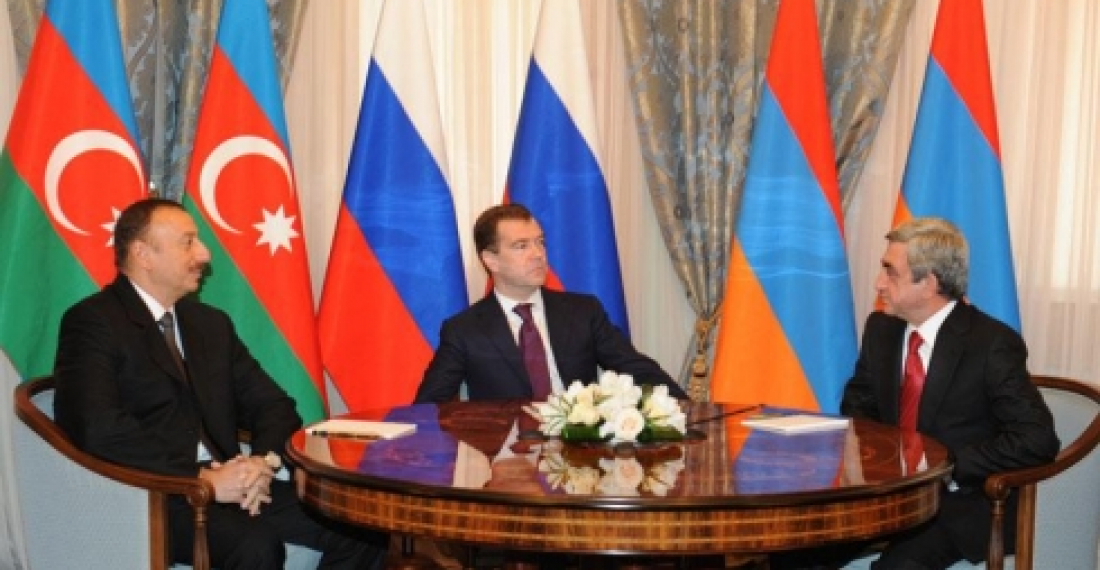The Kremlin Press Service has commented ahead of the meeting to be held today between the Presidents of Armenia and Azerbaijan with the President of Russia. The Kremlin noted that a successful settlement of the Nagorno-Karabakh conflict by peaceful means is one of Russia's priority interests in the region. It expressed serious concern at the frequent cases of violations of the ceasefire, involving casualties among servicemen and civilians, and the use of military rhetoric from both sides.
Russia consistently calls on the parties to develop confidence building, the press service noted.
In Sochi President Medevedev will also have seperate bilateral meetings with the two Presidents.
Over the weekend, the Deputy Russian Foreign Minister Karasin met in Moscow with the three co-Chairs of the OSCE Minsk Process, mandated to work with the two sides for the resolution of the Karabakh conflict.
Source: commonspace.eu with Itar-Tass
photo: The three Presidents at a previous meeting (archive picture, courtesy of the Press Service of the president of Armenia)







